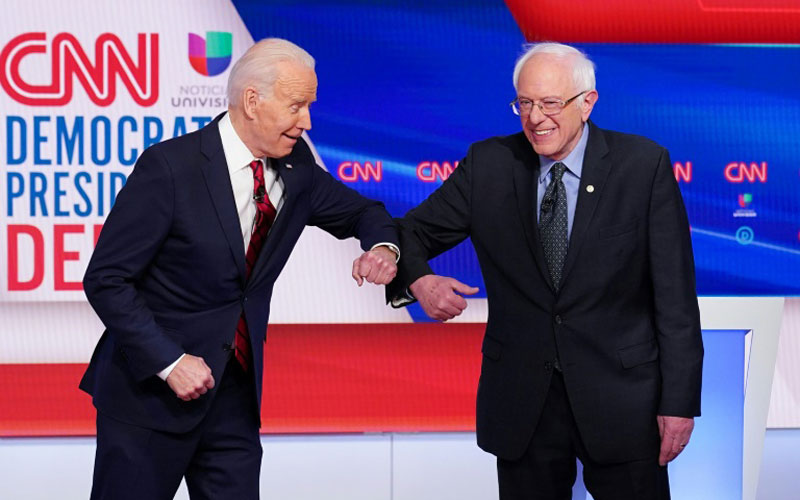×
The Standard e-Paper
Smart Minds Choose Us

Democratic presidential hopefuls former US vice president Joe Biden (L) and Senator Bernie Sanders greeted each other with an elbow bump at the start of the Democratic Party 2020 presidential debate in Washington on March 15, 2020
White House hopefuls Joe Biden and rival Bernie Sanders launched a joint attack on Donald Trump's response to the coronavirus pandemic as they faced off in high-stakes debate Sunday, accusing the president of undermining his own scientists with misinformation.